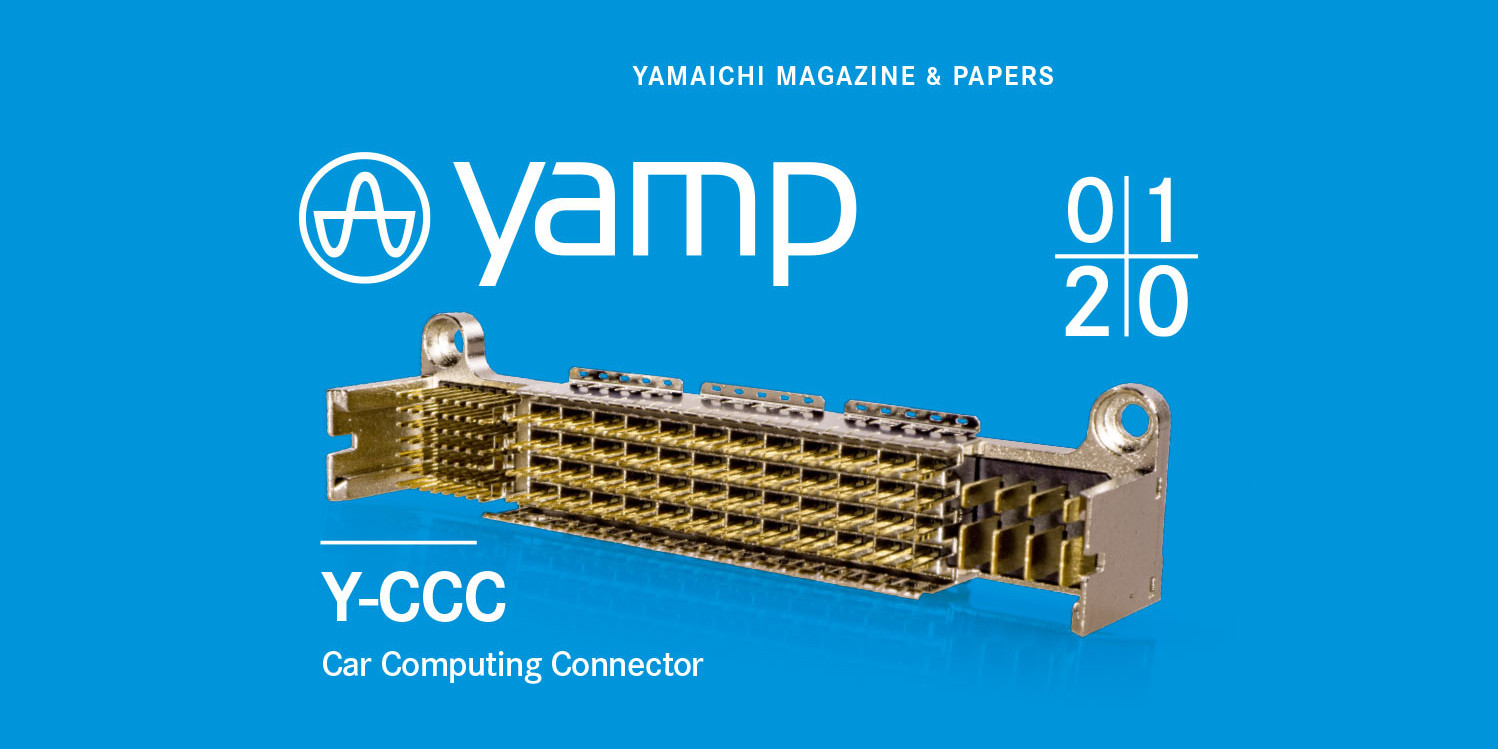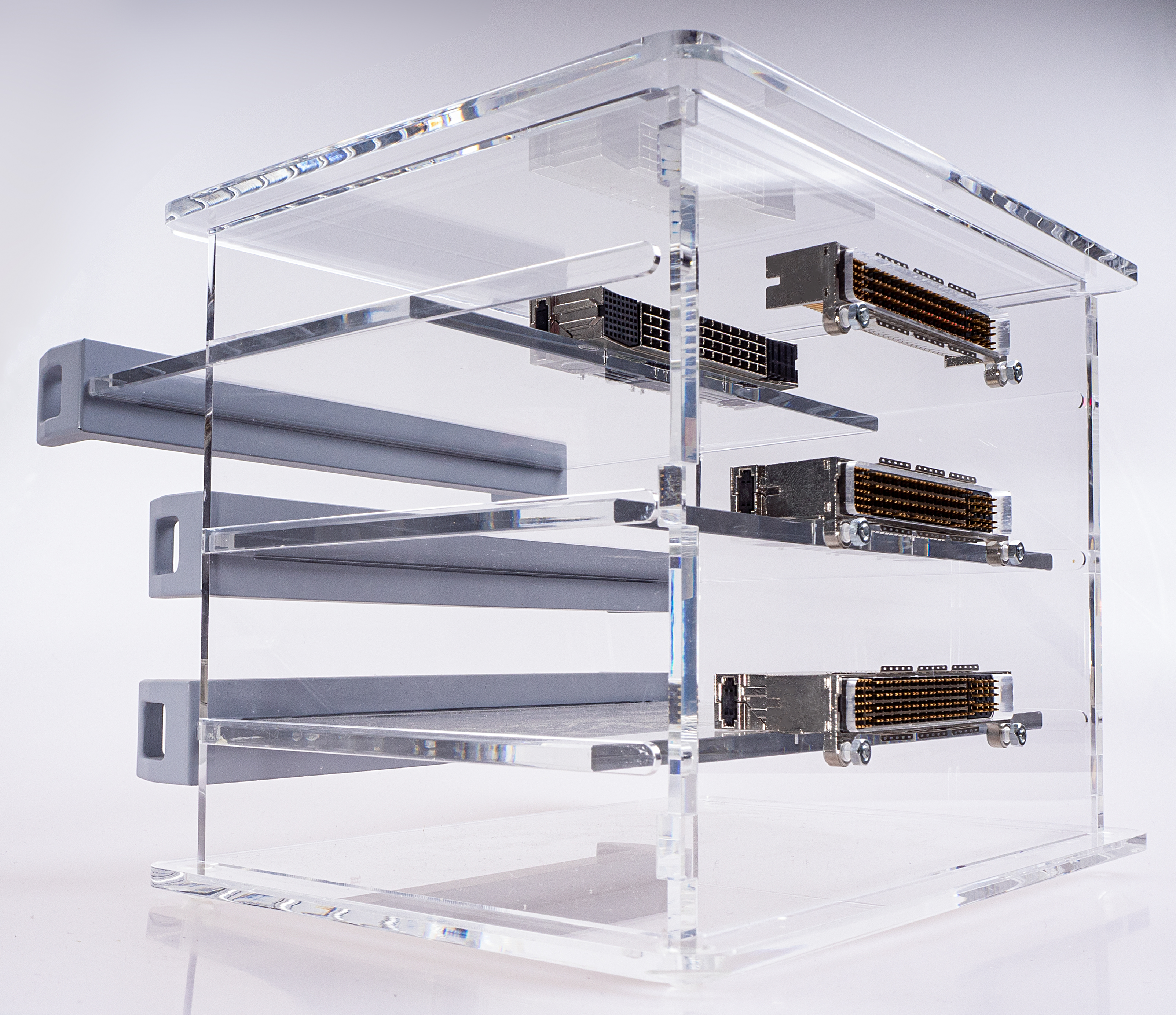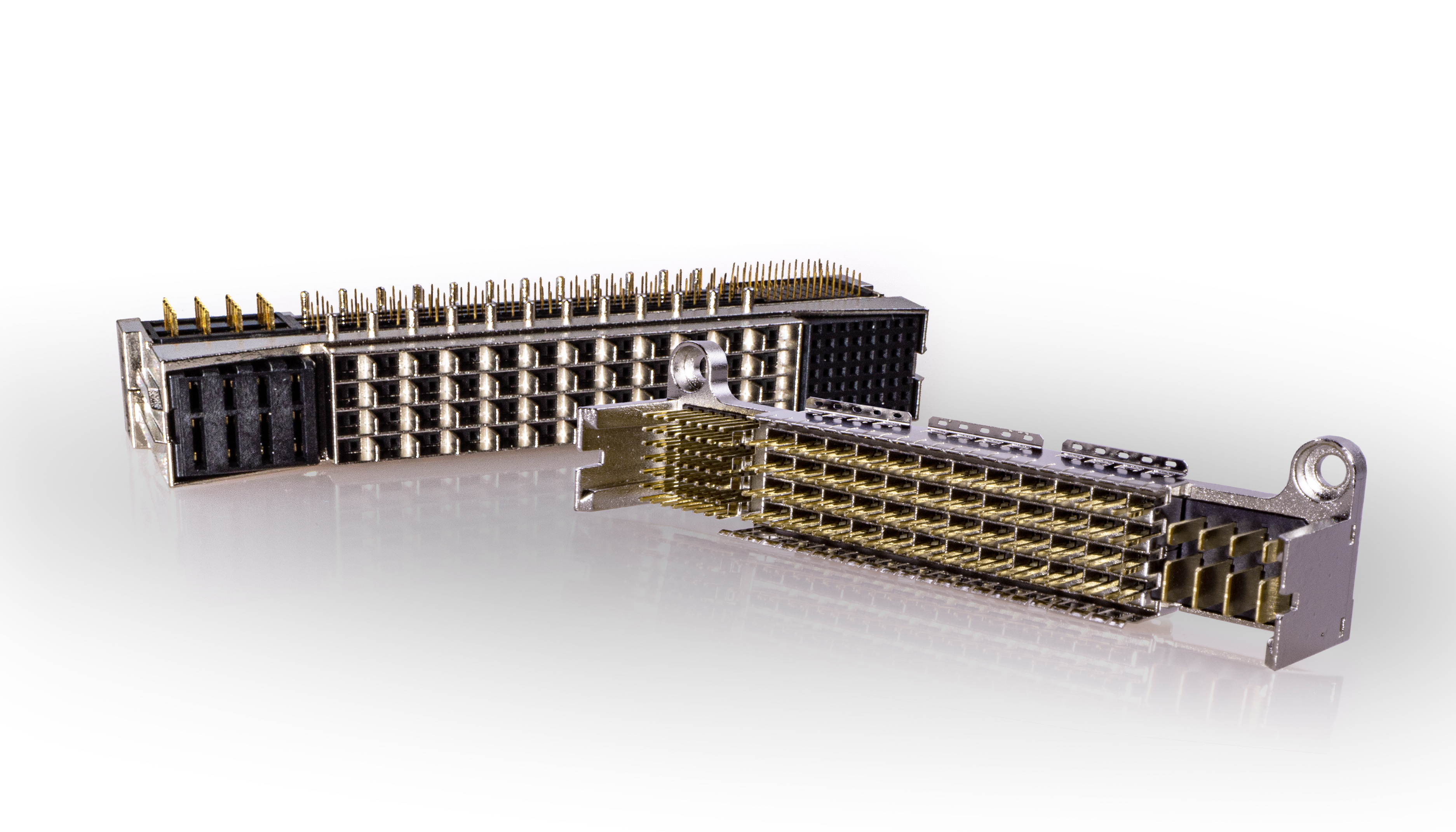The transformation occurring in the automotive sector shows no signs of stopping and the requirements of the supplier industry are becoming increasingly complex, especially for electromechanical systems. One of the greatest challenges here is the significantly growing data streams within the vehicle. To handle these data streams, new concepts and solutions are now needed – including in the area of electromechanical systems, where the task for the next connector generations is to support the new architectures. The second major challenge is that future systems – and therefore connectors – will frequently have to be able to transmit quite high powers. Continuous loads of up to 20 A and peak currents of over 40 A are no rarity here and clearly reflect the growing user profile. ‘Hot plug’ and ‘always on’ have also long had a place in OEMs’ requirements specifications.

Y-CCC Car Computing Connectors: Connectors for Central Vehicle Computers

Y-CCC was developed in cooperation with an OEM

In close cooperation with a large German OEM, Yamaichi Electronics Deutschland has already developed an interface for this purpose that maps the user profiles mentioned above. The result of this bears the name ‘Y-CCC’ – which stands for ‘Yamaichi Car Computer Connector’.
With the Y-CCC hybrid connector, the requirements in terms of power, conventional signals and high-speed signals can be accommodated in a single housing size and be transmitted accordingly.
To meet the tough requirements of the automotive industry relating to vibrations, shock loads etc., Yamaichi dimensioned the materials and design in line with common automotive standards such as LV214 and VDA and tested them internally. The connector housing is made of die-cast zinc and is a good example of implementation of the specifications and standards. With regard to the electrical shielding properties and the resulting signal integrity as well as the required vibration resistance, this connector represents an optimal compromise.
The current configuration of the Y-CCC connector system is as follows:
- 56 signal contacts
- 48 differential pairs for high-speed transmission up to PCIe 4.0
- 8 power contacts with 20 A current rating
- TH reflow solder version
- Screw fastening of backplane connector
Yamaichi Electronics became involved in this new area of the automotive industry at an early stage, but it is also clear that this will probably not be the last iteration of the connector system. Nevertheless, Y-CCC already provides a suitable interface for central computer structures in vehicles that can be appropriately adapted to other requirement profiles in joint efforts with tier ones and OEMs.
Author: Patrick Hammele
Business Development Manager Automotive

